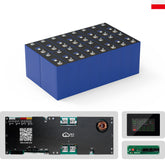Living Off the Grid Without Spending Money A Beginner’s Guide
Living off the grid means disconnecting from public utilities like electricity, water, and gas. Instead, you rely on alternative, often renewable, resources to meet your daily needs. For many, it’s a way to achieve self-sufficiency and reduce their environmental footprint.
Key Aspects of Living Off the Grid
- Energy Independence: Using renewable energy sources like solar, wind, or hydro.
- Water Access: Collecting rainwater or tapping into natural water sources.
- Food Production: Growing your own food or sourcing it locally.
- Shelter: Building or retrofitting homes to be self-sufficient.
- How to Start Living Off the Grid Without Spending Money
- Growing Your Own Food Off the Grid
- Challenges of Living Off the Grid Without Spending Money
- The Environmental Impact of Living Off the Grid
How to Start Living Off the Grid Without Spending Money
Utilize Free Resources
- Land Sharing or Community Living: Partner with others who already live off the grid and offer your labor or skills in exchange for shelter.
- Public Land: In some areas, you can camp or live temporarily on public land without cost.
- Recycled Materials: Use salvaged wood, metal, and other materials to construct your home or necessary structures.
Build Renewable Energy Solutions
Harnessing renewable energy is crucial for living off the grid. Here’s how you can start without major expenses:
Solar Power
- Look for second-hand solar panels from online marketplaces or local communities.
- DIY solar setups can significantly reduce costs while providing basic energy needs.
Wind Power
- Build a simple wind turbine using recycled materials.
- Use natural wind currents in your area to generate free electricity.
Hydro Power
- If you’re near a flowing water source, consider a micro-hydro generator.
- Repurpose old bicycle parts or turbines for a DIY hydroelectric system.
>>See also Reasons To Choose Self-Heating Lithium Iron Phosphate Batteries
Growing Your Own Food Off the Grid
Starting a Garden
- Seed Saving: Collect seeds from fruits and vegetables you eat.
- Composting: Use food scraps to enrich your soil naturally.
- Local Plants: Focus on growing native plants that thrive in your climate.
Foraging and Hunting
- Learn about edible wild plants in your area.
- Hunting and fishing provide protein sources without needing a store.
Accessing Water Off the Grid
Rainwater Collection
- Set up rain barrels to collect water for drinking, cooking, and irrigation.
- Use natural filtration systems like sand and charcoal to make water potable.
Natural Water Sources
- Identify nearby rivers, lakes, or springs.
- Ensure proper purification before using the water.
Building Off the Grid Housing
Using Natural Materials
- Earthbag Homes: Inexpensive and sustainable using local soil.
- Cob Houses: Made from clay, sand, and straw.
- Log Cabins: Constructed from felled trees in the area.
Repurposing Existing Structures
- Convert old buses, shipping containers, or sheds into living spaces.
- Use pallets and scrap wood for furniture and basic construction.
Managing Waste Off the Grid
- Composting Toilets: Turn human waste into fertilizer.
- Recycling and Upcycling: Maximize use of waste materials.
- Minimal Packaging: Reduce incoming waste by avoiding packaged goods.
Staying Connected While Living Off the Grid
Even off the grid, staying informed and connected is vital:
- Solar-Powered Gadgets: Charge phones or laptops with solar chargers.
- Community Networks: Engage with local off-grid communities for support.
- Ham Radios: Useful for emergencies and staying in touch.
Challenges of Living Off the Grid Without Spending Money
Overcoming Common Hurdles
- Initial Setup: Creative use of free or recycled materials can offset startup costs.
- Skill Building: Learn basic skills like gardening, carpentry, and plumbing.
- Weather Dependence: Prepare for extreme weather by diversifying resources.
>>See also What Is The Difference Between MPPT And PWM Charge Controllers
The Environmental Impact of Living Off the Grid
Living off the grid significantly reduces your carbon footprint. By relying on renewable resources and minimizing waste, you contribute to a healthier planet while gaining independence from unsustainable systems.
Living off the grid without spending money is challenging but deeply rewarding. By leveraging free resources, embracing renewable energy, and cultivating essential skills, you can create a sustainable and self-sufficient lifestyle. Whether you’re seeking freedom from modern systems or looking to reduce your environmental impact, living off the grid offers endless possibilities. Start small, stay resourceful, and watch as you transform your life into a testament to resilience and sustainability.
























Leave a comment
All blog comments are checked prior to publishing